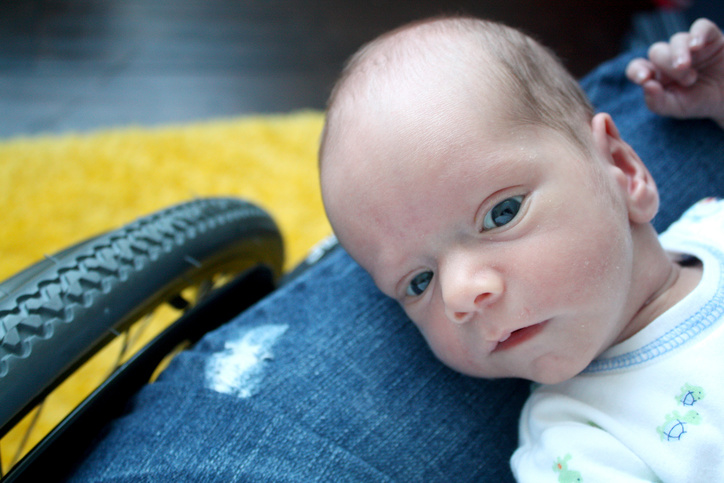Obstetric Clinicians' Experiences and Educational Preparation for Caring for Pregnant Women with Physical Disabilities: A Qualitative Study

Introduction
Though the Americans with Disabilities Act represents a significant step forward in advancing the rights of people with disabilities, women with disabilities face obstacles in receiving culturally sensitive health care. Research on the quality of health care for people with disabilities has found that pregnant women with physical disabilities often face negative attitudes and reactions from clinicians and staff as well as lack of provider knowledge about the interaction of pregnancy and disability. Many women felt providers failed to consider the women’s own expertise about her disability.
Suzanne Smeltzer, Monika Mitra, Linda Long-Bellil, Lisa Iezzoni and Lauren Smith conducted a qualitative study to capture the perspectives of obstetric clinicians providing care for women with mobility disabilities during their pregnancies. Reported here are findings related to provider education about pregnancy care of women with disabilities.
Methods
The study entailed:
-
Identifying obstetrical clinicians who had experience providing pregnancy care to women with physical disabilities;
-
Conducting 14 one-hour telephone interviews with clinicians who agreed to participate in the study;
-
Analyzing interview data using qualitative techniques to identify important themes that arose from the clinicians’ experiences providing perinatal care for women with physical disabilities.
Findings
Themes related to educational preparation for clinicians to provide pregnancy care to women with physical disabilities that arose from the clinician interviews are discussed.
Clinicians’ pathways to providing perinatal care for women with disabilities
-
Clinicians’ work with women with physical disabilities arose during their careers in obstetric practice; none of them had the initial intent to work with that population. Clinicians’ cited personal relationships, colleagues working in disability-related fields, and a sense of professional duty as reasons for entering the field.
-
None of the clinicians received formal training on caring for women with physical disabilities; they all gained their knowledge on the job.
-
Clinicians felt that providing formal training in medical school on working with pregnant women with disabilities would improve care for these women.
Clinicians’ experience in providing perinatal care for women with physical disabilities
-
Clinicians found their experiences working with women with physical disabilities rewarding. They also considered it the right thing to do from an ethical standpoint.
-
Clinicians discussed systemic barriers and challenges they face in caring for this population such as inaccessible facilities and equipment, appointment time limitations, and lack of available scientific data and evidence about pregnancy in women with physical disabilities.
Limitations
There are limitations to this study. The first limitation is selection bias; the clinicians who were contacted were known to have experience working with pregnant women with disabilities. Therefore the perspectives of clinicians who do not have experience caring for women with physical disabilities during pregnancy are not represented. The sample size was relatively small, meaning that the findings cannot be generalized.
Adapted from Smeltzer et al. (2017). Obstetric clinicians’ experiences and educational preparation for pregnant women with physical disabilities: A qualitative study. Disability and Health Journal, 2017 1-6. http://dx.doi.org/10.1016/j.dhjo.2017.07.004
